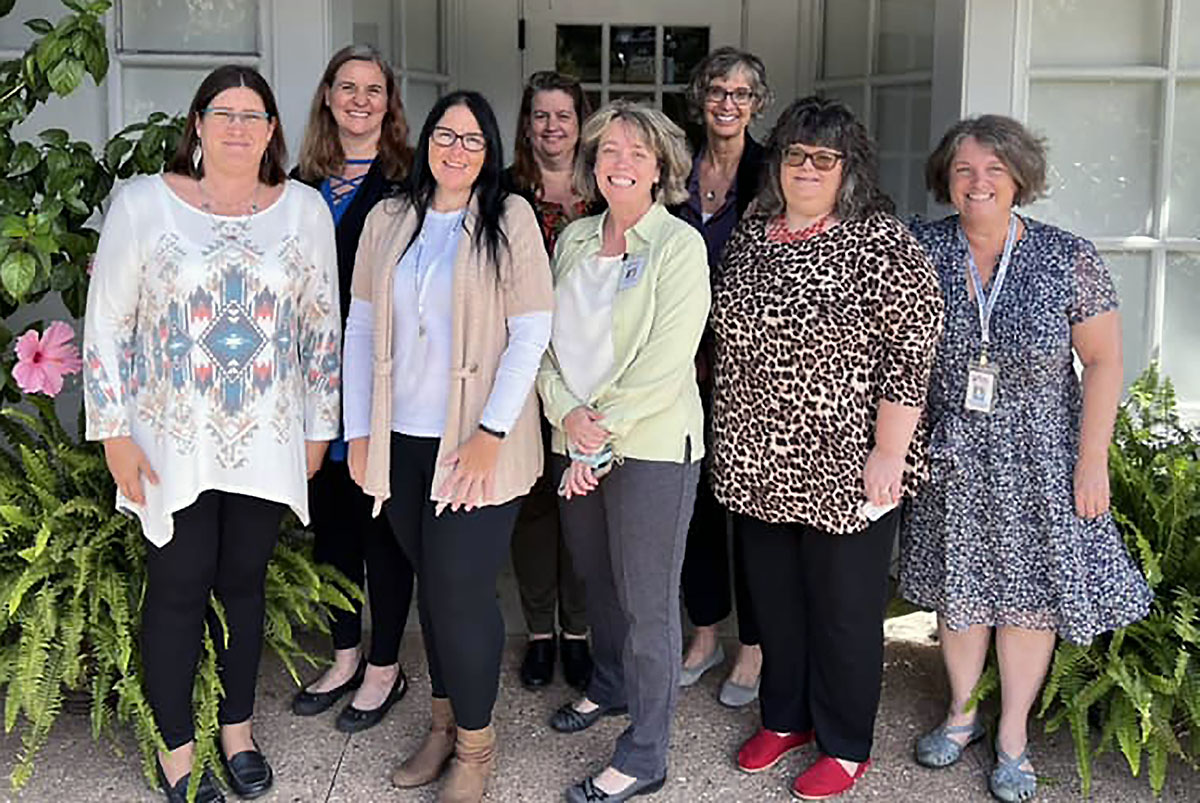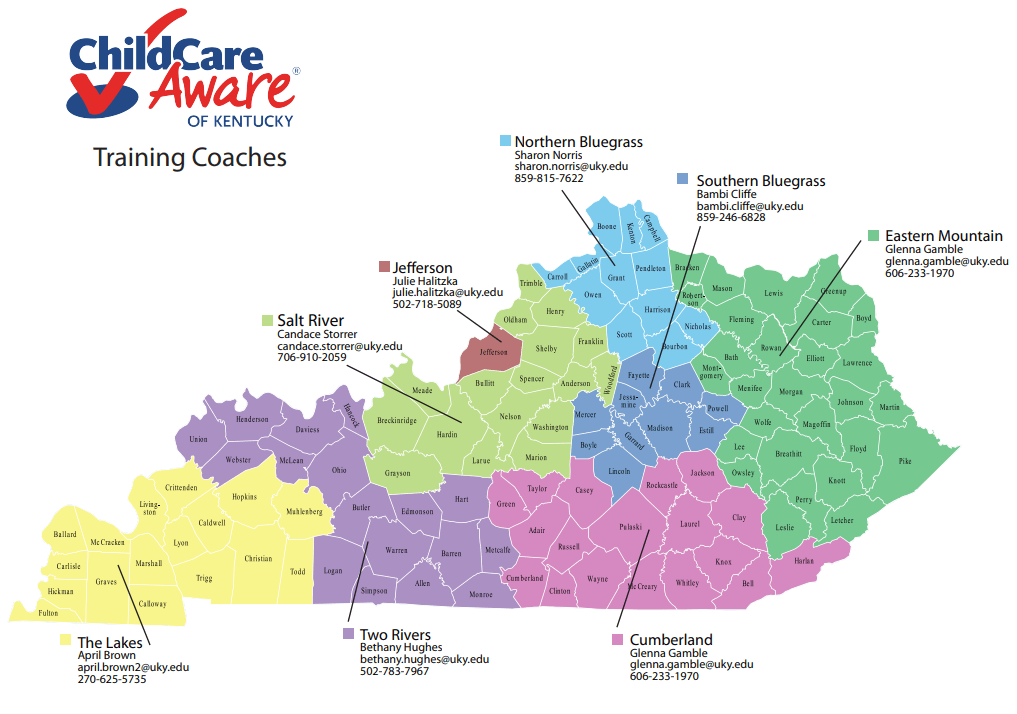Archives: Lessons
Lesson 3: Folders & File Organization
Lesson 2: Excel Spreadsheet Fundamentals
Lesson 1: Introduction to Electronic Forms
- The videos must be watched in order.
- You will watch the video until the end, when the related videos display.
- Once the related videos display, you will see a Mark Complete button below the video.
- Clicking Mark Complete will take you to the next Topic in the series.
- Questions? Use the Contact Us button at the bottom of any page to reach technical support.
- A green dot must appear beside each of the Topics below before you can move to the next part of the course.
- To begin, click the first topic below.
FET 3 – Lesson not copied – need to check for any needed content
FET 2 – lesson not copied, need to check content
FET 1
ECE-TRIS Information Form Copy
Trainer Credential Overview
This section will provide details about the credential itself and some helpful tips for the application process. Please use your FET 1 Handout for note-taking. You will want to jot down notes to ensure that you have a complete application the first time you submit.
Throughout the lesson there will be instructions to click on images and/or text for additional information to show. Some text will also expand and then be available. Please be sure to interact as you progress through all the sections and lessons.
Handouts
Thank you for making the decision to pursue your Trainer’s Credential. The purpose of FET is to give you the foundation to become an effective trainer who produces quality training. Producing high quality trainings is vital to early childhood professionals so they can use what they learn to provide high quality care for young children. It starts with YOU!
Let’s begin by taking a look at what is required to become a credentialed trainer in the Trainer’s Credential Overview.
Tips for Navigating FET
Throughout this training, you will encounter the following types of activities:
For those of you that are new to online learning, or to Learndash in particular, it may take a little practice learning how to navigate through the course. Please feel free to contact us by phone or email.
[ld_video] https://youtu.be/eeeVbHhRJag
Course Facilitators are your regional Training Coaches
This series of 4 FET modules is facilitated by the Regional Child Care Aware Training Coaches and Christine Hausman, the Professional Development Content Coordinator from Child Care Aware.

Pictured, from left to right: Bethany Hughes (Two Rivers), Julie Halitzka (Jefferson), April Brown (The Lakes), Bambi Cliffe (Southern Bluegrass), Candace Storrer (Salt River), Sharon Norris (Northern Bluegrass), Glenna Gamble (Eastern Mountain/Cumberland), and Christine Hausman (Training Content Coordinator).
Salt River
Anderson, Breckinridge, Bullitt, Franklin, Grayson, Hardin, Henry, Larue, Marion, Meade, Nelson, Oldham, Shelby, Spencer, Trimble, Washington and Woodford
Candance Storrer
candace.storrer@uky.edu
706-910-2059
Jefferson
Jefferson
Julie Halitzka
julie.halitzka@uky.edu
502-718-5089
Northern Bluegrass
Boone, Bourbon, Campbell, Carroll, Gallatin, Grant, Harrison, Kenton, Nicholas, Owen, Pendleton and Scott
Sharon Norris
sharon.norris@uky.edu
859-815-7622
Southern Bluegrass
Boyle, Clark, Estill, Fayette, Garrard, Jessamine, Lincoln, Madison, Mercer and Powell
Bambi Cliffe
bambi.cliffe@uky.edu
859-246-6828
Eastern Mountain
Bath, Bracken, Boyd, Breathitt, Carter, Elliott, Fleming, Floyd, Greenup, Johnson, Knott, Lawrence, Lee, Leslie, Letcher, Lewis, Magoffin, Martin, Mason, Menifee, Montgomery, Morgan, Owsley, Perry, Pike, Robertson, Rowan and Wolfe
Glenna Gamble
glenna.gamble@uky.edu
606-233-1970
The Lakes
Ballard, Caldwell, Calloway, Carlisle, Christian, Crittenden, Fulton, Graves, Hickman, Hopkins, Livingston, Lyon, Marshall, McCracken, Muhlenberg, Trigg and Todd
April Brown
april.brown2@uky.edu
270-625-5735
Cumberland
Adair, Bell, Casey, Clay, Clinton, Cumberland, Green, Harlan, Jackson, Knox, Laurel, McCreary, Pulaski, Rockcastle, Russell, Taylor, Wayne and Whitley
Glenna Gamble
glenna.gamble@uky.edu
606-233-1970
Two Rivers
Allen, Barren, Butler, Daviess, Edmonson, Hancock, Hart, Henderson, Logan, McLean, Metcalfe, Monroe, Ohio, Simpson, Union, Warren and Webster
Bethany Hughes
bethany.hughes@uky.edu
502-783-7967
Ethics and Professionalism
In this section, you will learn about the importance of attaining and maintaining a professional approach to your role as a trainer. We will also discuss the role that ethics plays in your personal development and public persona.
Training Outcome
Participants will create a personal code of ethics for their role as a trainer.
Roadmap
- Define Professionalism
- Introduce the Kentucky Standards of Training for Early Childhood Professionals
- Discuss ethics and explore how that relates to copyright and fair use laws.

Optimal Conditions for Adult Learning
As we move through the study of some cognitive and adult learning theory-based approaches to learning that the current research espouses, connect parts of this content back to the information you received in the previous two sections regarding learning and the brain and individual life experiences, culture, and identity. This will help you to see exactly WHY these approaches to learning are effective.
This look at how to create optimal conditions for adult learning uses significant content and framework that is presented in the online publication and supplemental resources of Learning Styles As A Myth, which was created by the Poorvu Center for Teaching and Learning at Yale University.

For our purposes as future Early Care and Education trainers, we will look at this information in three main areas: Inclusive Teaching Strategies, Group Work/Collaborative Learning, and Active Learning.
Training Outcome
Participants will incorporate knowledge of optimal conditions for adult learning to revise a learning experience from their past.
Roadmap
- Identify and define inclusive teaching strategies.
- Identify and define group work/collaborative learning.
- Identify and define active learning.

Yale Poorvu Center for Teaching and Learning – https://poorvucenter.yale.edu/LearningStylesMyth?fbclid=IwAR0dh25BEk1KwthV8ZpcqeaF7b8WZoJpebnhwOdnz61CnaJWqSa1uCACYlg
Brain Function and Development
Training Outcome
Participants will apply knowledge about brain function, structure and development to better understand a learning experience from their past.
Roadmap
- Identify and define elements of brain function and structure.
- Identify and define how brain development relates to learning.
- Analyze a learning experience from your past.

Diversity of Adult Learners
In every group of adult learners, there exists a wide range of diversity. Many different individuals will be present, each one of them uniquely shaped by the forces that are at work in a wide range of identity-forming cultural and life experiences.
This diversity and the factors that create it all contribute to the development of individual learning profiles that each individual training participant will bring into your training. Understanding more about human diversity will help you plan trainings that are more able to connect with and reach these diverse adult learners. This will in turn increase your chances of educating, inspiring and helping to chart a path for training participants to change their work behaviors to improve outcomes for children and families in early care and education settings.
Training Outcome
Participants will determine how components of life experiences, culture, and identity impact individual training participants.
Roadmap
- Define life experiences, culture, and identity.
- Create lists of descriptive labels related to each of these areas for themselves by creating an Identity Chart.

Designing an Effective Online Learning Environment
Training Outcomes
Participants will be able to identify 3 strategies that are safe and supportive, interactive and flexible and engaging when designing an online course.
Participants will describe how their role changes in the online learning environment.
Roadmap
- Identify what trainers do to create a welcoming and comfortable psychological environment in an online training
- Determine how the online environment changes your role as a trainer.

Creating a Safe Psychological Environment
Training Outcome
Participants will describe five things to do before the training, during the introduction of the training, and throughout the training that create and maintain a welcoming and comfortable learning environment.
Roadmap
- Identify what trainers do to create a welcoming and comfortable psychological environment
- Determine what a trainer does to maintain a comfortable psychological environment throughout the training

Effective Strategies for Successful Training
Before long, you will be attending a group training day as part of FET. This group training day is set up as a working example of an effective training environment. The organizational ideas that you will see presented there may strike you as unique and effective possibilities that perhaps you will want to try when you set up training events.
Training Outcome
Participants will describe and share specific resources and strategies for the organizational components of training that have been successful in past training sessions.
Roadmap
- Discussion of organizational strategies
- Explore additional resources for trainers

Physical Environment for Face to Face Training
Training Outcome
Participants will select a training room set-up that takes into consideration adult learner characteristics and supports the intended training outcomes.
Roadmap
In this lesson we will:
- Evaluate potential training locations
- Discuss various training room arrangements
- Review a checklist for selecting and evaluating training sites/rooms


